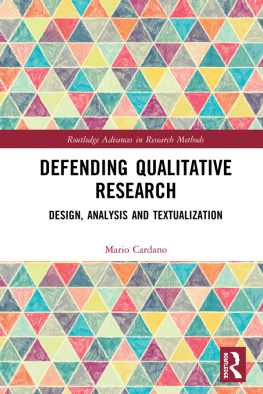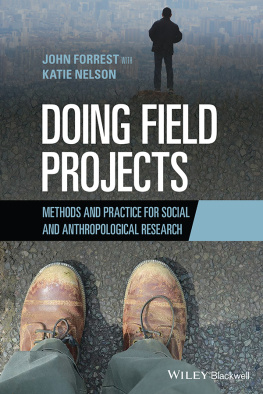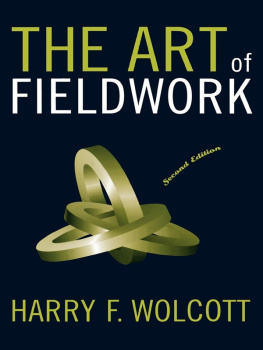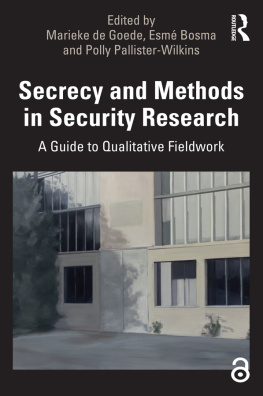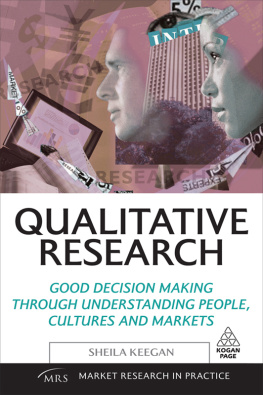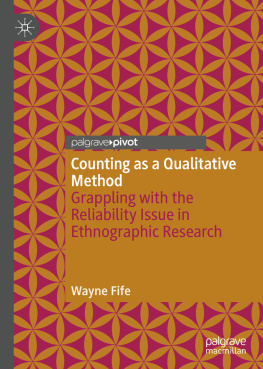Jason Orne - An Invitation to Qualitative Fieldwork
Here you can read online Jason Orne - An Invitation to Qualitative Fieldwork full text of the book (entire story) in english for free. Download pdf and epub, get meaning, cover and reviews about this ebook. year: 2015, publisher: Routledge, genre: Politics. Description of the work, (preface) as well as reviews are available. Best literature library LitArk.com created for fans of good reading and offers a wide selection of genres:
Romance novel
Science fiction
Adventure
Detective
Science
History
Home and family
Prose
Art
Politics
Computer
Non-fiction
Religion
Business
Children
Humor
Choose a favorite category and find really read worthwhile books. Enjoy immersion in the world of imagination, feel the emotions of the characters or learn something new for yourself, make an fascinating discovery.

- Book:An Invitation to Qualitative Fieldwork
- Author:
- Publisher:Routledge
- Genre:
- Year:2015
- Rating:3 / 5
- Favourites:Add to favourites
- Your mark:
- 60
- 1
- 2
- 3
- 4
- 5
An Invitation to Qualitative Fieldwork: summary, description and annotation
We offer to read an annotation, description, summary or preface (depends on what the author of the book "An Invitation to Qualitative Fieldwork" wrote himself). If you haven't found the necessary information about the book — write in the comments, we will try to find it.
An Invitation to Qualitative Fieldwork — read online for free the complete book (whole text) full work
Below is the text of the book, divided by pages. System saving the place of the last page read, allows you to conveniently read the book "An Invitation to Qualitative Fieldwork" online for free, without having to search again every time where you left off. Put a bookmark, and you can go to the page where you finished reading at any time.
Font size:
Interval:
Bookmark:

Edited by Richard E. Ocejo
Andrea Wiley
Catherine M. Tucker
Kaori OConnor
Yi-Chieh Jessica Lin
Nick Copeland & Christine Labuski
Janet Chrzan
Luis A. Vivanco
Phillip Vannini
Paula Uimonen
Jeanine Marie Minge & Amber Lynn Zimmerman
Margaret Somerville
Alisse Waterston
David Redmon
Phillip Vannini & Jonathan Taggart
Lisa Tillmann
Edited by Sharon Zukin, Philip Kasinitz, & Xiangming Chen
by Routledge
711 Third Avenue, New York, NY 10017
2 Park Square, Milton Park, Abingdon, Oxon, OX14 4RN
Michael M. Bell.
H62.O745 2015
001.433dc23
2014032657
ISBN: 978-0-415-53662-2 (pbk)
ISBN: 978-1-315-79416-7 (ebk)
by ApexCovantage, LLC
Font size:
Interval:
Bookmark:
Similar books «An Invitation to Qualitative Fieldwork»
Look at similar books to An Invitation to Qualitative Fieldwork. We have selected literature similar in name and meaning in the hope of providing readers with more options to find new, interesting, not yet read works.
Discussion, reviews of the book An Invitation to Qualitative Fieldwork and just readers' own opinions. Leave your comments, write what you think about the work, its meaning or the main characters. Specify what exactly you liked and what you didn't like, and why you think so.

